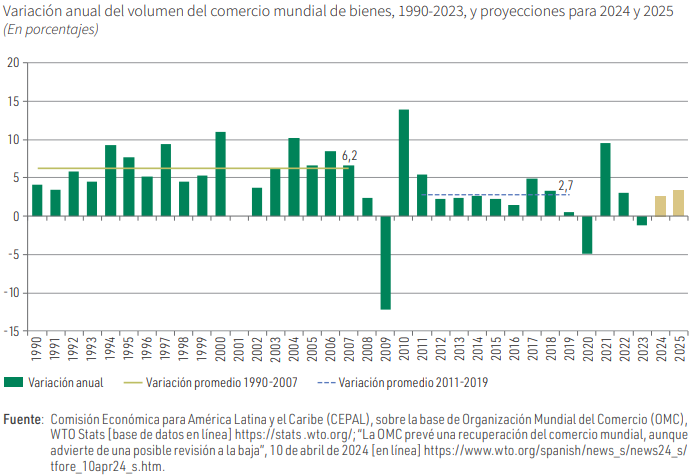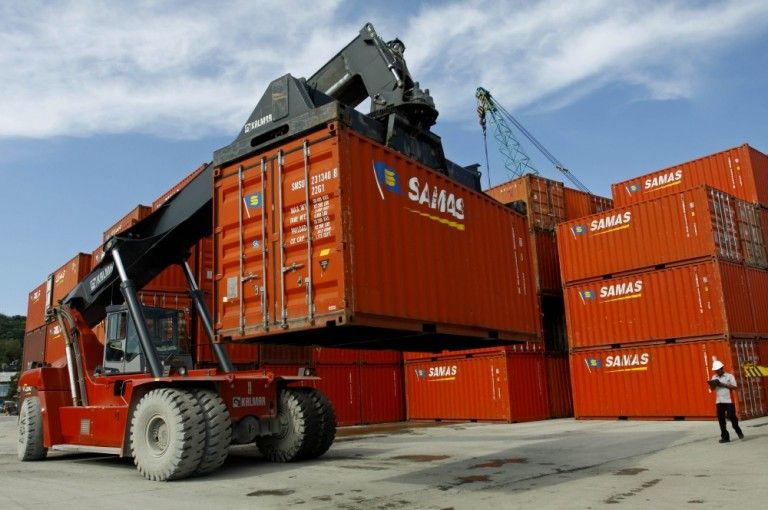As a process of de-globalization progresses, the volume of world trade in goods grew at a year-on-year rate of 1% from January to July 2024.
One step back: world trade volume fell by 1.2% in 2023 compared to 2022.
According to a report by the Economic Commission for Latin America and the Caribbean (ECLAC), the weakness of the recovery reflects several factors. On the one hand, there is uncertainty about the growth prospects of the world economy. On the other, an environment marked by growing protectionism, geopolitical tensions and disruptions in maritime transport is also having an impact.
Last October 10, the World Trade Organization (WTO) projected that the volume of world merchandise trade will grow 2.7% in 2024 and 3% in 2025.

De-globalization
According to Advisors’ Inner Circle Fund III, the decades-long trend of globalization is in full retreat.
De-globalization began during the administration of former U.S. President Donald Trump. This trend has continued during the years of the current administration of President Joe Biden. Both the decline and subsequent recovery in world trade, as measured by the CPB commodity index, highlight a major shift. This contrasts with the nearly uninterrupted growth in global trade between 2002 and 2018, with the exception of the period of the global financial crisis.
Advisors’ Inner Circle Fund III believes that the Cold War world order may be the new paradigm, as the world witnesses the emergence of a Russian-Chinese bloc in opposition to the Western democracy bloc.
This development may produce national or bloc barriers to free trade, innovation and efficiency and could be a new driver of secular and systemic increases in inflation.
Product exports and imports
ECLAC forecasts that world trade in goods will remain sluggish in 2024. This behavior has characterized global trade for more than a decade. Furthermore, it is expected to continue far from the average annual expansion of 6.2% recorded during the greatest boom of globalization between 1990 and 2007.
In its International Trade Outlook for Latin America and the Caribbean, 2024, ECLAC reports that the volume of world trade in goods contracted in 2023 for several reasons. This setback occurred in a context marked by several geopolitical tensions. In addition, there were disruptions in some of the world’s main maritime trade routes.
There were also high energy prices and inflationary levels. Although inflation was lower than in 2022, it remained above the trend of recent decades.

